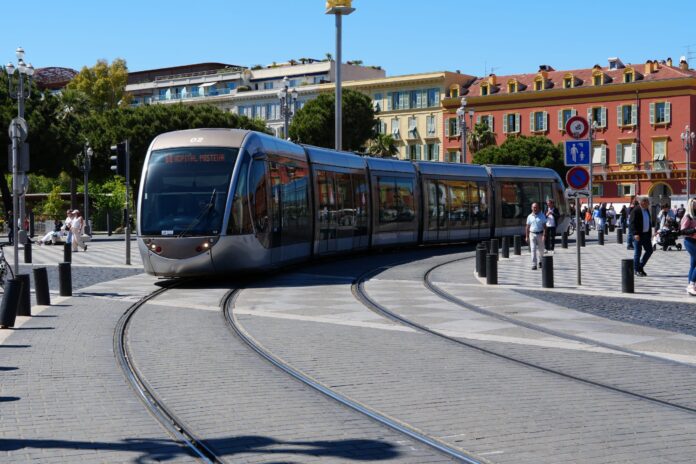The “Viva!” collective reignites the controversy around free public transportation. Its members advocate for a social and ecological measure. The Court of Auditors, on the other hand, warns about an unsustainable cost. Between financial arguments and a desire to change habits, the battle finds its place in the local debate.
In Nice, the issue of free public transportation takes on a political dimension. The “Viva!” collective, close to the local left, is pushing for a radical shift. Its members argue that free transportation is a necessity. They see it as a response to climate challenges and a way to reduce the reliance on cars.
On September 18, Robert Injey, spokesman for the collective, criticized the approach of the Court of Auditors. For him, the magistrates “restrict themselves to numbers” and do not take into account the need to “change the paradigm.” In his statement, he advocates for “shifting from a car-centric culture to a public transportation culture.”
“Viva!” presents its own calculations. According to them, free transportation across all urban networks would represent 5 to 6 billion euros per year, a cost they compare to the 13 billion euros spent on road network maintenance by local authorities. Their reasoning is straightforward: if public money can support cars, it can also fund buses and trams.
The collective also relies on experiences conducted elsewhere. In some cities, the use of public transportation has increased, and car traffic is said to have decreased by 5 to 10%. But these figures are debated. Studies show that the new users are often former cyclists or pedestrians, not drivers.
A Local Political Divide
The controversy goes beyond numbers. It opposes two visions of urban planning and the role of public authorities. For Christian Estrosi, mayor of Nice, and his deputy for transport Gaël Nofri, free transportation is not a priority. Their argument is based on the idea that what the user doesn’t pay, the taxpayer does.
The municipal executive prefers to invest in service quality, safety, and network expansion. The current fares, considered “already among the lowest in the country,” are presented as a reasonable balance between accessibility and funding.
In contrast, “Viva!” criticizes “immobility.” Robert Injey emphasizes the uniqueness of the Alpes-Maritimes department, saturated daily between Cannes and the Italian border. “Immobility on this issue is deadly,” he writes. For him, refusing free transportation is equivalent to prolonging an unsustainable model in the face of climate disruption.
The local left echoes these arguments. It stresses the urgency of changing mobility behaviors. Free transportation is presented as a lever to provoke this shift. But the issue of funding remains unresolved.
The Court of Auditors as a Harsh Arbiter
The debate in Nice resonates with the national report published on September 16 by the Court of Auditors. The institution emphasizes the urgency of acting against climate change. Pierre Moscovici, its first president, stated that “the status quo is not an option.”
The report stresses that “the cost of ecological transition is much lower than that of inaction.” The Court calls for rigorous planning and better alignment between public budgets and climate objectives. But it also warns against uncontrolled spending.
In this context, free urban transportation appears as a risky choice. It could destabilize local finances, which are already under pressure. The institution reminds us that funding needs for the ecological transition far outweigh current resources. More than 200 billion euros per year would be necessary, twice as much as the amounts currently mobilized.
A Question of Priorities
The controversy in Nice illustrates a national tension. On one hand, the ecological urgency demands rethinking mobility. On the other, local governments must arbitrate between multiple investments: network expansion, equipment modernization, emission reduction.
The debate remains open. Free transportation is attractive for its symbolism and social potential. But its opponents remind us that it does not eliminate the reality: maintaining and developing a transport network is costly.
In Nice, as elsewhere, the issue boils down to a political equation. Should full free transportation be funded at the risk of increasing deficits, or should targeted service improvements be prioritized? Between ecological urgency and budgetary caution, the answer is not clear-cut.


